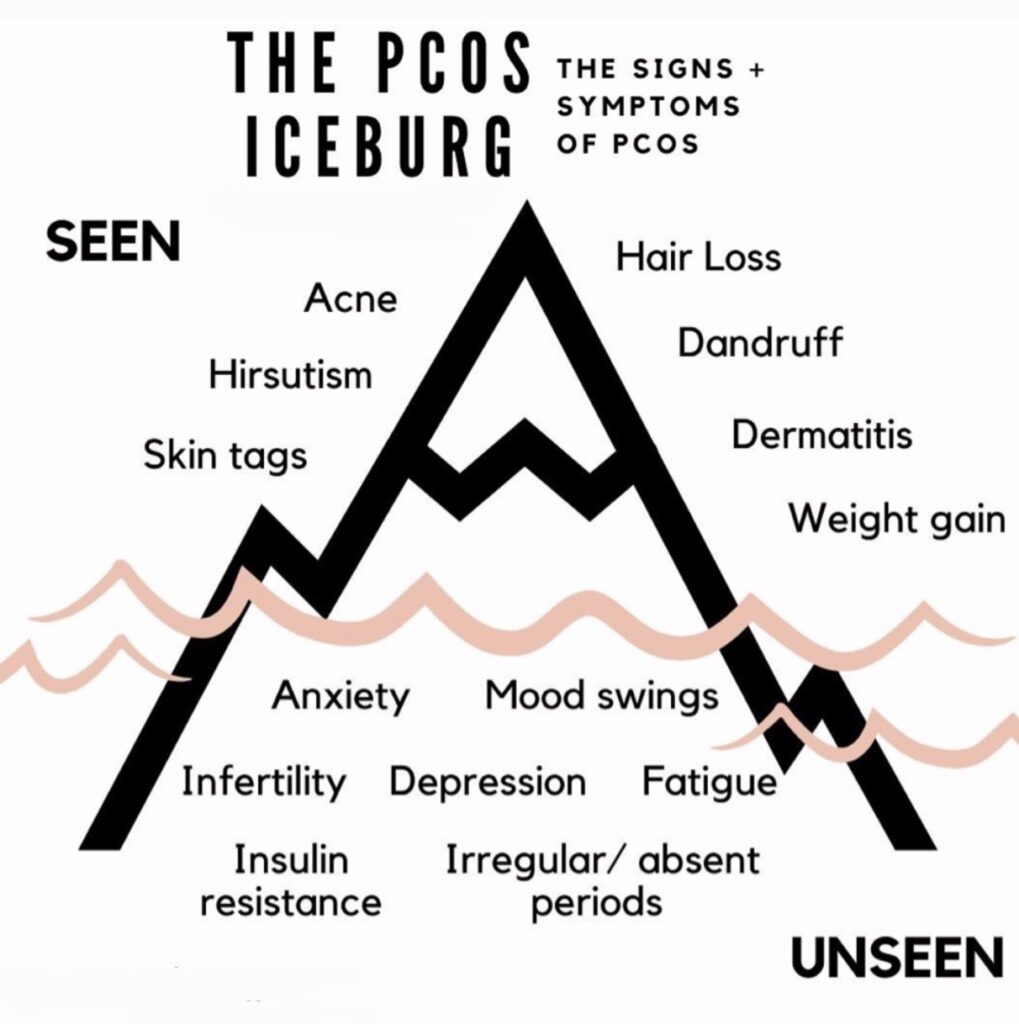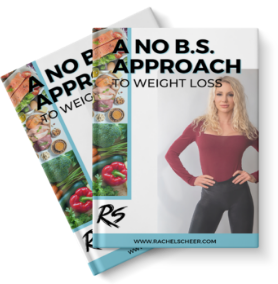PCOS, What is it and Why Does Diet Help?
By Christine Forsythe, RD, LD
Generations of women have been struggling with what is known today as polycystic ovarian syndrome, or PCOS. Only recently however, have we discovered just how common this medical condition is.
Polycystic ovarian syndrome is, at its core, a condition that affects women’s hormones. Shockingly, around 1 in every 10 women of childbearing age possess traits of PCOS and up to 70% of women who have it, haven’t even been diagnosed (1). To be diagnosed with this condition, you must meet 2 of the following 3 criteria:
- High androgen levels
- Irregular menstrual cycles
- Cysts in the ovaries
Unfortunately, being diagnosed with PCOS doesn’t automatically mean answers. For me, even just the process of getting my diagnosis was a journey in itself. I went from doctor’s offices to university health centers to medical clinics, having test after test done to try and see what was happening in my body. When I finally got the definitive answer of PCOS, I wasn’t given much hope or direction for how to work WITH my body to help it heal from the inside, out.
Once diagnosed with polycystic ovarian syndrome, the first line of defense in treatment prescribed by most conventional medicine doctors is the contraceptive pill. Unfortunately, this doesn’t address the ROOT CAUSE behind why there is a hormonal imbalance or why certain symptoms are occurring. The pill is only a band-aid solution to a much bigger problem that lies deeper beneath the surface.

The exact etiology, or cause, behind why one develops PCOS is unknown (2). However, one of the main drivers of symptoms, whether that be cystic acne, abnormal hair growth, weight gain, menstrual dysfunction and much more, is insulin resistance (3).
Insulin is a hormone produced by the pancreas that is released when your body consumes food, especially in the form of carbohydrates. Insulin’s job is to take the glucose from your bloodstream (blood sugars), into the cells for use as immediate fuel. When there is an excess of blood sugars, meaning your body cannot use it immediately for energy, it is stored as glycogen in the liver. When the liver has reached its glycogen capacity, insulin takes glucose to storage in adipose tissue (fat), in the form of triglycerides.

In a person without insulin resistance, after meal consumption, the body is able to release insulin and respond to the increase in blood sugar effectively; taking the nutrients from the food into the cells for immediate or stored use. However, in someone with insulin resistance (like those with PCOS, type 2 diabetes and other metabolic conditions), the body stops responding to insulin in the way that it should. Overtime, this can lead to prolonged elevation in blood sugar levels which can have toxic effects if left unaddressed.
So why is food important when it comes to PCOS, what seems to be on the surface, a solely hormonal based condition?
Because many, if not all, of the symptoms that are common with this condition can be alleviated through diet and lifestyle modifications ALONE! Don’t believe me? I am living proof. Before I was diagnosed with PCOS and started to make shifts in the way I looked at food consumption, I was suffering with severely painful cystic acne, weight gain, hair loss and menstrual irregularities. Using my background in nutrition and dietetics, and knowing that if I was going to make any significant changes in my symptoms without medications I would have to take my health into my own hands, I started making changes in my diet and lifestyle that have impacted me immeasurably and have helped reverse many of my symptoms.

According to an article discussing PCOS, inflammation and insulin resistance, “women with PCOS tend to exhibit oxidative stress in response to glucose ingestion (4).” We see instances of oxidative stress when free radicals, coming from air pollution/pesticides/contaminated water/inflammatory diet etc., cause severe damage inside the body. This can manifest into conditions such as heart disease and even cancer. Reading this can be quite unsettling to those of you suffering from this condition; ‘So, you’re telling me I can never have a cookie or ice cream again?’ Well, no not exactly.
When you work with me as a coach, I educate you on how to eat in a way that works WITH your body to help alleviate the unwanted symptoms you are facing. I teach you how to consume foods that will stabilize your blood sugar levels, reduce systemic inflammation, eliminate unwanted oxidative stress and how to make food combinations that will leave you satisfied and energized until your next meal.
Blood sugars and carbs are not the enemy, but maybe the way you’re consuming them are!

Interested in working with me through 1-1 coaching? Book a free 15-minute call here.

Rachel Scheer is a Certified Nutritionist who received her degree from Baylor University in Nutrition Science and Dietetics. Rachel has her own private nutrition and counseling practice located in McKinney, Texas. Rachel has helped clients with a wide range of nutritional needs enhance their athletic performance, improve their physical and mental health, and make positive lifelong eating and exercise behavior changes.
Read This Next
Micronutrients, or the vitamins and minerals your body needs, typically work like a team. To…
If you want to improve gut health, or even optimize your overall health, you’ve probably…
Have you ever found yourself grappling with the discomfort of abdominal distension, bloating, or cramping,…



